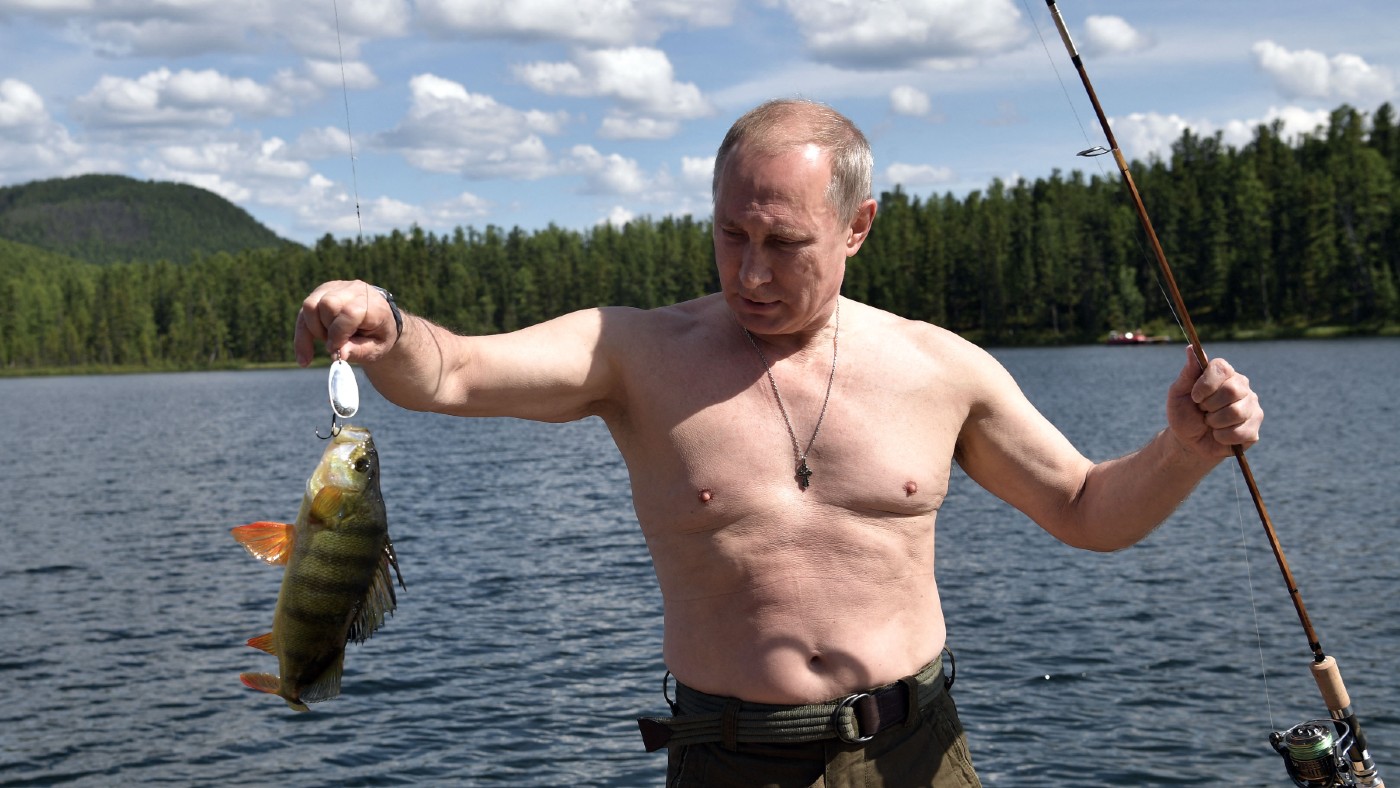The Age of the Strongman by Gideon Rachman: a timely and depressing book
Rachman analyses strategies used by Putin, Duterte and Bolsonaro to hold onto power

A free daily email with the biggest news stories of the day – and the best features from TheWeek.com
You are now subscribed
Your newsletter sign-up was successful
Over the past couple of decades, a dozen or so ruthless, socially conservative nationalists have risen to power across the globe. Their “archetype” is Vladimir Putin, said Owen Bennett-Jones in Literary Review – the “founding father of modern despotism”; others in his mould include Rodrigo Duterte of the Philippines, Brazil’s farright leader Jair Bolsonaro, and Narendra Modi, the Hindu nationalist prime minister of India.
These men all come from different backgrounds, but in this absorbing book, Gideon Rachman, the Financial Times’s chief foreign affairs columnist, argues that all were “helped into power by a peculiar set of circumstances” that arose in the early part of this century. Following the 9/11 attacks and the 2008 financial crisis, there was a “crisis of confidence among the world’s liberals”. The strongman, he says, “filled the vacuum”, often rallying support by presenting their countries as the victims of a “hypocritical West”.
What is striking (and depressing) is how many of these strongmen were initially seen as “moderates and modernisers”, said Lawrence Freedman in The Sunday Times. Viktor Orbán, Hungary’s recently re-elected prime minister, was a student activist during the dying days of communism. Turkey’s Recep Erdogan was hailed as the man to reform Islam; and it was widely thought that Putin would bring order to Russia “while staying close to Western states”.
The Week
Escape your echo chamber. Get the facts behind the news, plus analysis from multiple perspectives.

Sign up for The Week's Free Newsletters
From our morning news briefing to a weekly Good News Newsletter, get the best of The Week delivered directly to your inbox.
From our morning news briefing to a weekly Good News Newsletter, get the best of The Week delivered directly to your inbox.
All, however, slid into authoritarianism. Rachman offers a “sharp analysis” of the strategies they’ve used to hold onto power – typically a combination of media manipulation, rigged elections, and populist rhetoric that positions them on the side of “ordinary people” against sinister global elites.
Appearing as it does against the backdrop of Putin’s “war of extermination” in Ukraine, this book certainly feels timely, said Dominic Lawson in the Daily Mail. Yet this same backdrop makes the chapter on Boris Johnson, whom Rachman claims has “elements of the strongman”, mainly because of his role in Brexit, seem rather odd. The PM is “far from a strong leader”, and he doesn’t belong in the same category as Putin.
The Ukraine conflict also casts doubt on Rachman’s assumption that we are very much still in the “age of the strongman”, said Roger Boyes in The Times. With each passing day of his botched “blitzkrieg”, Putin appears less the strongman, and more the “feeble commander” – and that could have knock-on effects. “If the Kremlin leader wobbles, so too could the mini-Putins flexing their muscles across the globe.”
Bodley Head 288pp; £20
A free daily email with the biggest news stories of the day – and the best features from TheWeek.com

The Week Bookshop
To order this title or any other book in print, visit theweekbookshop.co.uk, or speak to a bookseller on 020-3176 3835. Opening times: Monday to Saturday 9am-5.30pm and Sunday 10am-4pm.
-
 Political cartoons for February 15
Political cartoons for February 15Cartoons Sunday's political cartoons include political ventriloquism, Europe in the middle, and more
-
 The broken water companies failing England and Wales
The broken water companies failing England and WalesExplainer With rising bills, deteriorating river health and a lack of investment, regulators face an uphill battle to stabilise the industry
-
 A thrilling foodie city in northern Japan
A thrilling foodie city in northern JapanThe Week Recommends The food scene here is ‘unspoilt’ and ‘fun’
-
 A thrilling foodie city in northern Japan
A thrilling foodie city in northern JapanThe Week Recommends The food scene here is ‘unspoilt’ and ‘fun’
-
 Tourangelle-style pork with prunes recipe
Tourangelle-style pork with prunes recipeThe Week Recommends This traditional, rustic dish is a French classic
-
 Samurai: a ‘blockbuster’ display of Japan’s legendary warriors
Samurai: a ‘blockbuster’ display of Japan’s legendary warriorsThe Week Recommends British Museum show offers a ‘scintillating journey’ through ‘a world of gore, power and artistic beauty’
-
 BMW iX3: a ‘revolution’ for the German car brand
BMW iX3: a ‘revolution’ for the German car brandThe Week Recommends The electric SUV promises a ‘great balance between ride comfort and driving fun’
-
 Arcadia: Tom Stoppard’s ‘masterpiece’ makes a ‘triumphant’ return
Arcadia: Tom Stoppard’s ‘masterpiece’ makes a ‘triumphant’ returnThe Week Recommends Carrie Cracknell’s revival at the Old Vic ‘grips like a thriller’
-
 My Father’s Shadow: a ‘magically nimble’ love letter to Lagos
My Father’s Shadow: a ‘magically nimble’ love letter to LagosThe Week Recommends Akinola Davies Jr’s touching and ‘tender’ tale of two brothers in 1990s Nigeria
-
 Send Help: Sam Raimi’s ‘compelling’ plane-crash survival thriller
Send Help: Sam Raimi’s ‘compelling’ plane-crash survival thrillerThe Week Recommends Rachel McAdams stars as an office worker who gets stranded on a desert island with her boss
-
 Book reviews: ‘Hated by All the Right People: Tucker Carlson and the Unraveling of the Conservative Mind’ and ‘Football’
Book reviews: ‘Hated by All the Right People: Tucker Carlson and the Unraveling of the Conservative Mind’ and ‘Football’Feature A right-wing pundit’s transformations and a closer look at one of America’s favorite sports